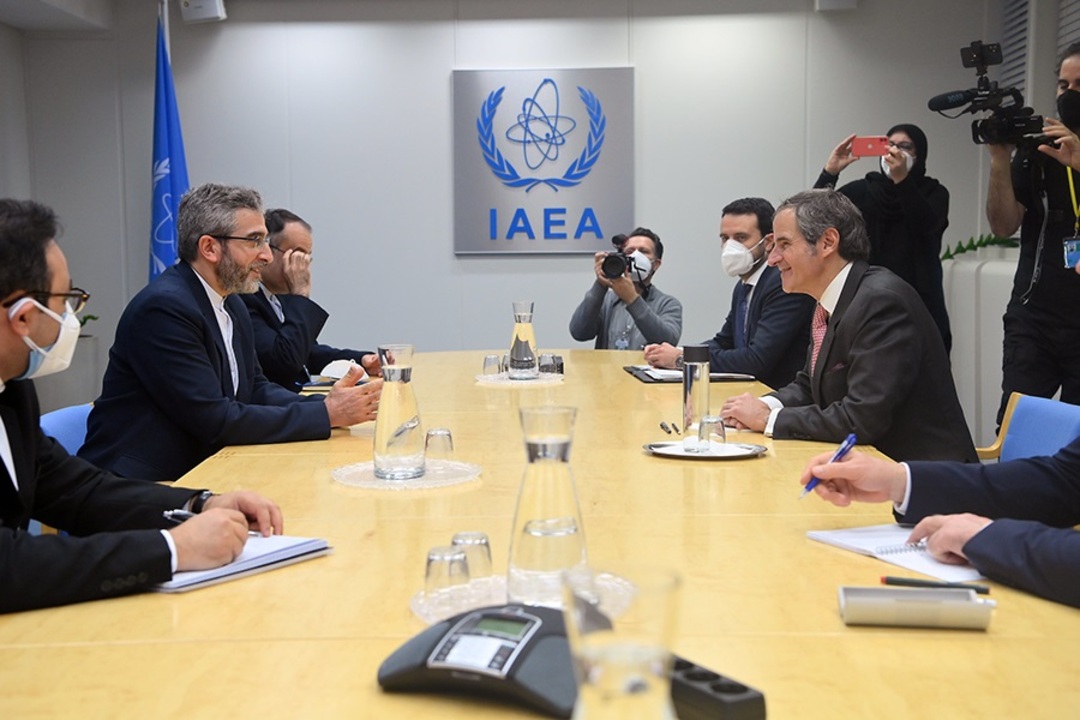-
IAEA Denies Nuclear Facilities at Israeli-Targeted Parchin Site
-
IAEA Denial of Nuclear Facilities in Parchin Reveals Contradiction Between Israeli Statements and Ground Facts According to International Organization

IAEA Chief Executive Rafael Grossi today denied any indicators suggesting the targeted portion of Parchin military complex, hit by Israeli strike last month, contained nuclear facilities or materials.
Grossi's statements came in response to Israeli Prime Minister Benjamin Netanyahu's Monday claim that Israel targeted "a specific part of the nuclear program" in Iran.
The UN official praised Tehran's "substantial step" in beginning arrangements to halt its highly enriched uranium stockpile growth.
Speaking to media at the start of IAEA Board of Governors meeting in Vienna, he stated: "I see this as a substantial step in the right direction," adding this happens "for the first time." He continued, "We have here a fact verified by our observers," referring to Western powers' demands for actions over statements.
According to the international organization's report, experts detected at Natanz and Fordow nuclear facilities "Iran beginning implementation of preparations aimed at stopping its 60% enriched uranium stockpile increase."
This percentage approaches the 90% required for nuclear weapon manufacturing. Tehran denies such military ambitions, maintaining its right to nuclear technology for peaceful uses, particularly power generation.
Despite this last-minute compliance, the three European capitals Paris, Berlin, and London (E3) with Washington proposed a resolution condemning Iran's non-cooperation ahead of Thursday's vote, according to diplomatic sources.
If approved, Iranian authorities warned they would take "appropriate measures in response." In this context, Grossi urged the council's 35 member state representatives to "be patient" and "avoid unjustified tension, especially in a region that has suffered greatly."
Tehran gradually abandoned its nuclear commitments protesting Washington's 2018 withdrawal from the international agreement signed three years earlier in Vienna.
While Grossi acknowledged "much effort" still required to enhance cooperation after years of tension, he emphasized "the importance of Iran taking a different approach for the first time (...) announcing 'okay we'll stop,'" explaining Tehran set "no conditions," but he "doesn't rule out" its commitment withdrawal if the decisive resolution passes.
Levant-Agencies
You May Also Like
Popular Posts
Caricature
BENEFIT Sponsors BuildHer...
- April 23, 2025
BENEFIT, the Kingdom’s innovator and leading company in Fintech and electronic financial transactions service, has sponsored the BuildHer CityHack 2025 Hackathon, a two-day event spearheaded by the College of Engineering and Technology at the Royal University for Women (RUW).
Aimed at secondary school students, the event brought together a distinguished group of academic professionals and technology experts to mentor and inspire young participants.
More than 100 high school students from across the Kingdom of Bahrain took part in the hackathon, which featured an intensive programme of training workshops and hands-on sessions. These activities were tailored to enhance participants’ critical thinking, collaborative problem-solving, and team-building capabilities, while also encouraging the development of practical and sustainable solutions to contemporary challenges using modern technological tools.
BENEFIT’s Chief Executive Mr. Abdulwahed AlJanahi, commented: “Our support for this educational hackathon reflects our long-term strategic vision to nurture the talents of emerging national youth and empower the next generation of accomplished female leaders in technology. By fostering creativity and innovation, we aim to contribute meaningfully to Bahrain’s comprehensive development goals and align with the aspirations outlined in the Kingdom’s Vision 2030—an ambition in which BENEFIT plays a central role.”
Professor Riyadh Yousif Hamzah, President of the Royal University for Women, commented: “This initiative reflects our commitment to advancing women in STEM fields. We're cultivating a generation of creative, solution-driven female leaders who will drive national development. Our partnership with BENEFIT exemplifies the powerful synergy between academia and private sector in supporting educational innovation.”
Hanan Abdulla Hasan, Senior Manager, PR & Communication at BENEFIT, said: “We are honoured to collaborate with RUW in supporting this remarkable technology-focused event. It highlights our commitment to social responsibility, and our ongoing efforts to enhance the digital and innovation capabilities of young Bahraini women and foster their ability to harness technological tools in the service of a smarter, more sustainable future.”
For his part, Dr. Humam ElAgha, Acting Dean of the College of Engineering and Technology at the University, said: “BuildHer CityHack 2025 embodies our hands-on approach to education. By tackling real-world problems through creative thinking and sustainable solutions, we're preparing women to thrive in the knowledge economy – a cornerstone of the University's vision.”
opinion
Report
ads
Newsletter
Subscribe to our mailing list to get the new updates!






















